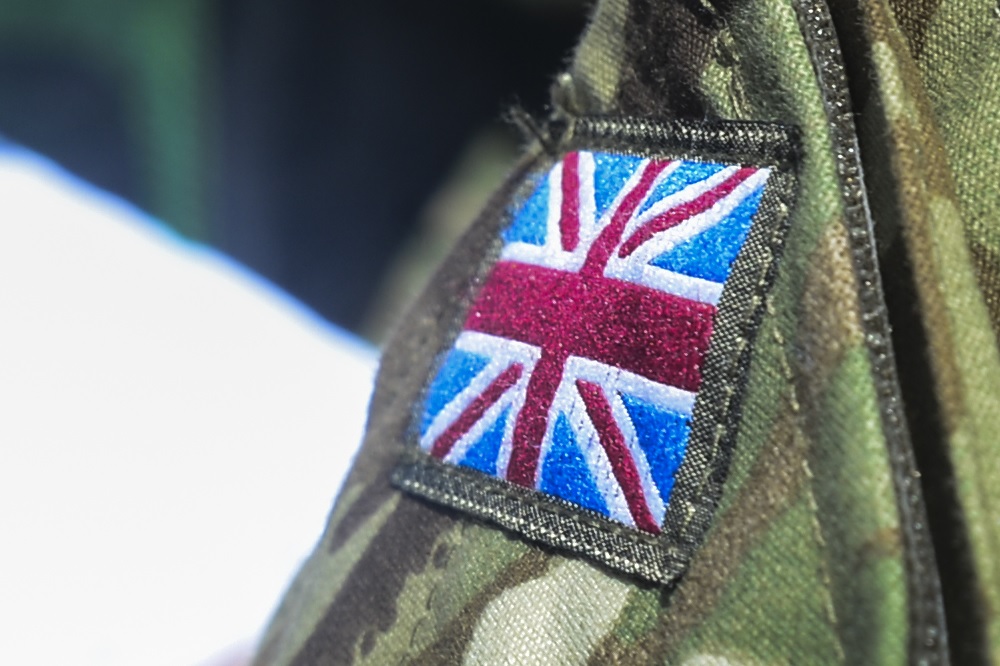Wales should have a say on whether our sons and daughters are sent to war

Jonathan Edwards MP, Plaid Cymru’s Defence Spokesperson
The deployment of the Armed Forces is currently a prerogative power, meaning the executive can unilaterally decide to go to war without consulting the House of Commons.
The defeat of the British Government in a vote on military action in Syria in August 2013 was widely viewed as an assertion of Parliamentary sovereignty on such matters. Yet many have argued that the convention lacks clarity and remains open to interpretation and exploitation.
Indeed, the airstrikes against the Syrian regime’s chemical weapons capabilities earlier this year were undertaken without recourse to Parliament, with the British Government justifying its actions on humanitarian grounds.
The lack of parliamentary consultation reignited the debate about formally legislating for the role of the House of Commons in such matters.
Plaid Cymru argues that the debate around formalising Parliamentary approval should come hand in hand with the argument for the endorsement of the National Assembly for Wales.
Any direct UK military action involving Welsh troops, or troops stationed in Wales, should require the consent of both Houses of Parliament and the endorsement of the National Assembly for Wales.
The argument for this is threefold:
1.) Planning for war without planning for peace is inconceivable and that any military action requires proper debate and scrutiny.
The British State should not be able to declare war and put our sons’ and daughters’ lives in danger without going through the proper checks and balances.
British Government foreign policy has been a series of disasters. From Libya to Iraq to Afghanistan, these aggressive misadventures have failed so spectacularly. Collective decision making across the British State would remove Westminster jingoism from political decisions and lead to a defence policy based on security rather than aggression.
It easy enough for Westminster politicians to dance to the battle drum safe in the knowledge they won’t have to do the fighting themselves.
2.) Following Brexit, the British State has a choice of two paths. At the moment, the Prime Minister is favouring the path towards the centralisation of powers away from Wales.
For as long as Wales remains a part of the British State, Plaid Cymru favours a path which would lead towards a partnership of equals, giving the National Assembly for Wales a say on decisions affecting the wellbeing of our citizens.
3.) The Welsh Government is responsible for funding the formative education of service personnel and in providing public service support after active duty.
Considering the investment that the Welsh taxpayer rightly makes in our young people in particular, surely the government of our country should have a role to play in deciding whether they are put in harm’s way?
The eight airstrikes in Syria alone cost over £6 million, to which every Welsh taxpayer will have contributed.
Plaid Cymru is of the firm belief that even if all Welsh Members of Parliament opposed military intervention Wales’s voice would be overruled.
The National Assembly for Wales should have the opportunity to debate a matter of such magnitude which is of direct relevance to Wales.
Some have raised concerns about how requiring the endorsement of the Assembly would work in relation to the UK’s NATO commitments.
Of course, our defensive commitments in relation to NATO would supersede parliamentary approval mechanisms. We are talking about offensive military action.
No definitive answers have been provided on drafting effective legislation for the approval of parliament, despite British Government commitments.
The circumstances and mechanisms whereby a vote would be held are the subject of continuous debate and are open to interpretation.
There’s no reason why, during the current debate, that an extra dimension relating to the involvement of troops from the devolved nations is discussed.
This would also allow for robust debate surrounding the mechanisms whereby the devolved parliaments can give consent, either by LCM or affirmative resolution, to the involvement of troops from their respective territories.
Support our Nation today
For the price of a cup of coffee a month you can help us create an independent, not-for-profit, national news service for the people of Wales, by the people of Wales.





